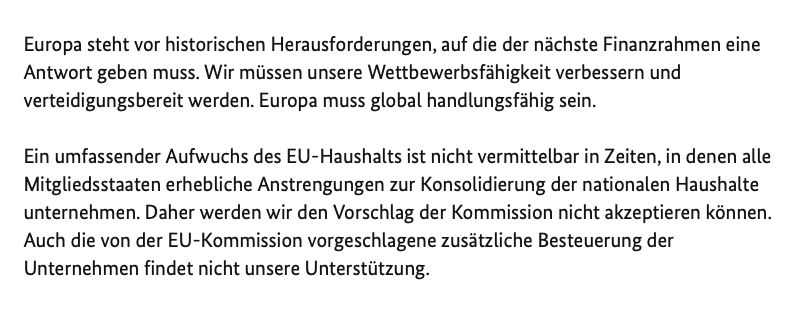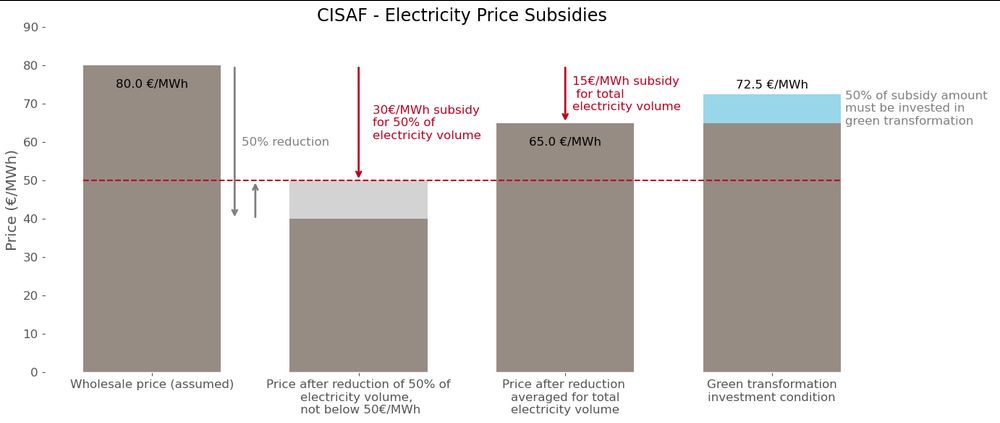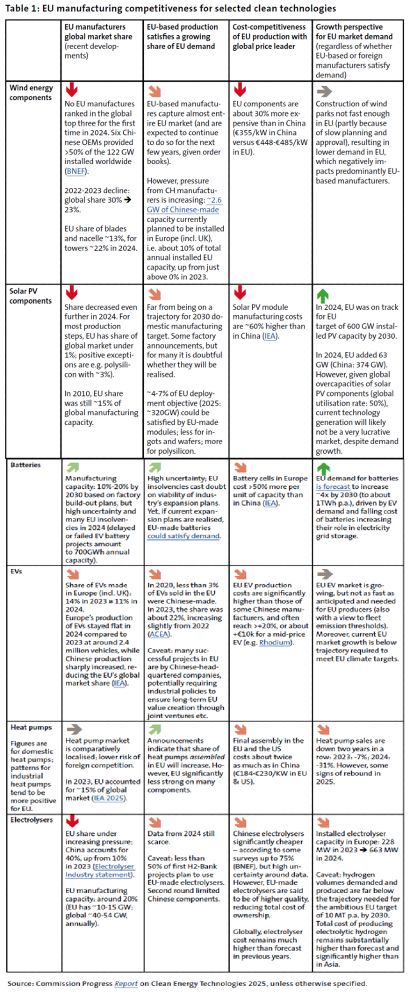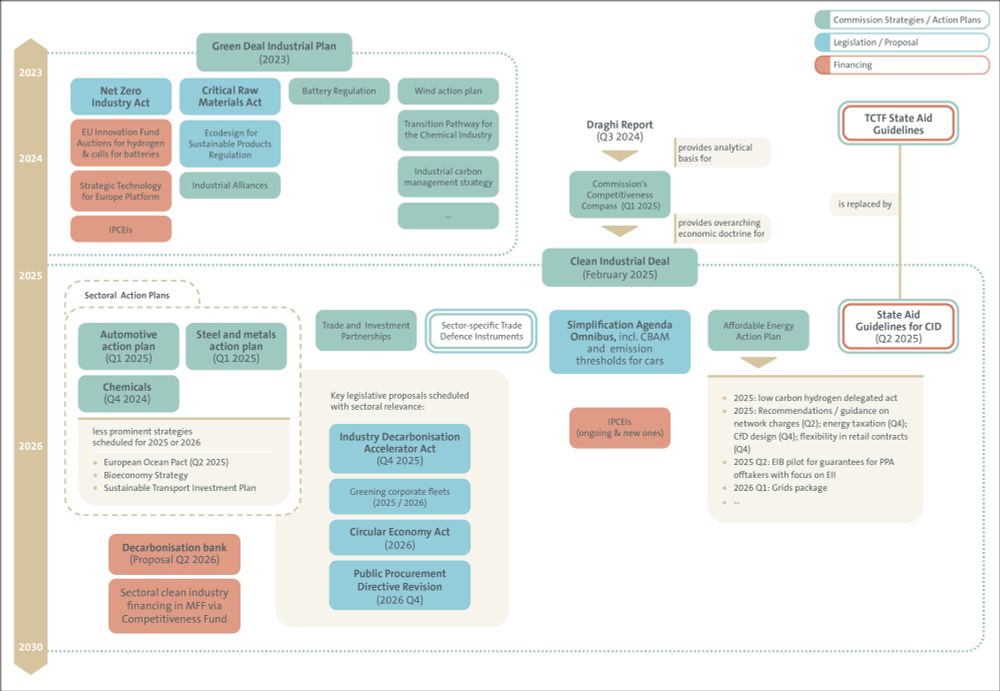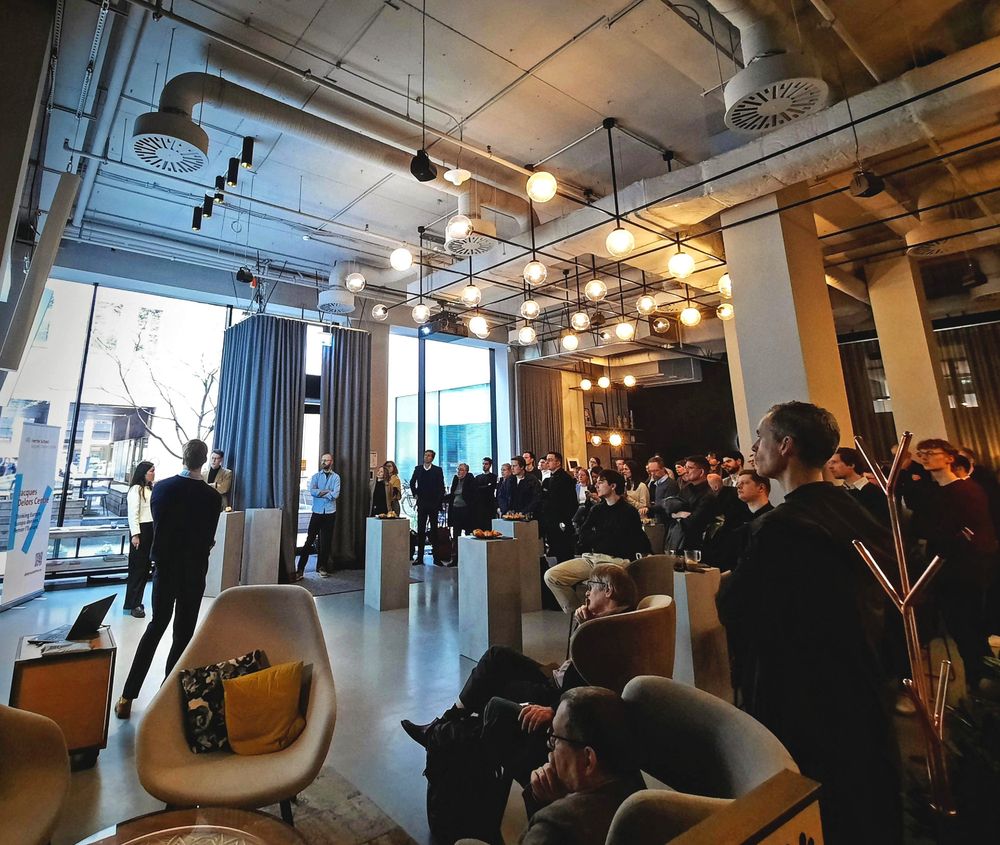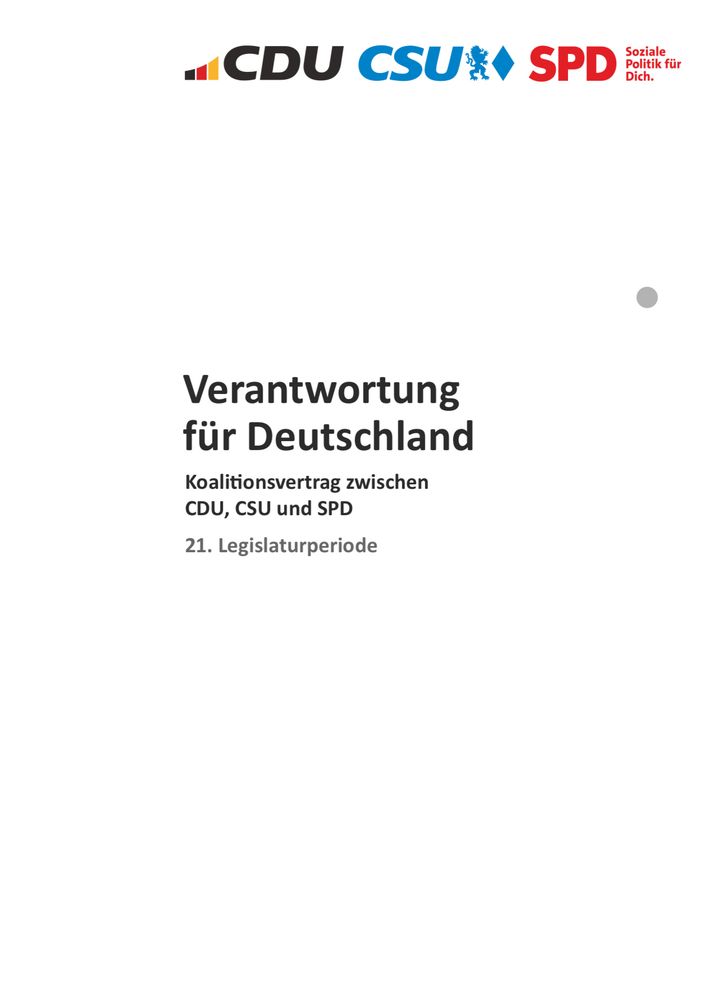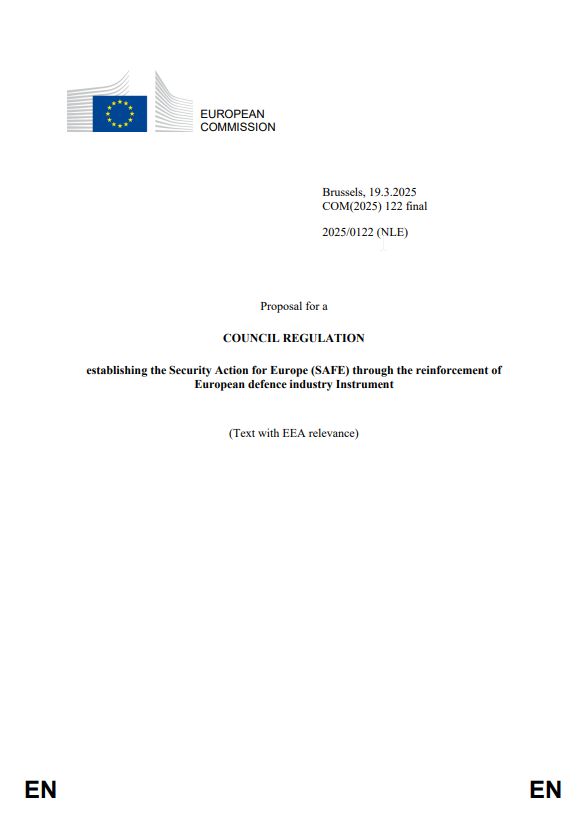

Philipp Jäger
@ph-jaeg.bsky.social
Policy Fellow @DelorsBerlin, covering EU econ & climate policy || previously at EU Commission, working on Germany's recovery || Econ at LSE
created October 5, 2023
533 followers 282 following 210 posts
view profile on Bluesky Posts
 Philipp Jäger (@ph-jaeg.bsky.social) reposted
Philipp Jäger (@ph-jaeg.bsky.social) reposted
The German scientific advisory board for economics published its take on EU industrial policy. Unfortunately, its conclusions are off the mark on three important issues: the appropriate role of the EU-level, the self-sufficiency of ETS, and declaring sectors as 'strategic'. Thread 🧵 (1/n)
 Philipp Jäger (@ph-jaeg.bsky.social) reply parent
Philipp Jäger (@ph-jaeg.bsky.social) reply parent
here the board's report (in German) www.bundeswirtschaftsministerium.de/Redaktion/D...
 Philipp Jäger (@ph-jaeg.bsky.social) reply parent
Philipp Jäger (@ph-jaeg.bsky.social) reply parent
Conclusion: The German government should help advance common EU industrial policy, instead of taking two steps back by following the scientific board's advise on these three critical issues. Given the board's obvious expertise, perhaps its next report can show how to operationalise this. (end).
 Philipp Jäger (@ph-jaeg.bsky.social) reply parent
Philipp Jäger (@ph-jaeg.bsky.social) reply parent
... doing industrial policy without strategic prioritization won't work: the EU must play to its strengths and be mindful of its weaknesses vis-a-vis China&US. And if this prioritization is not done explicitly, it's still done implicitly, revealed by government focus & allocation of subsidies.(15/n)
 Philipp Jäger (@ph-jaeg.bsky.social) reply parent
Philipp Jäger (@ph-jaeg.bsky.social) reply parent
Third, the report argues against declaring certain industries as strategic priorities, since 'strategic' is hard to define and causes all industry to lobby. These are indeed risks, but they can be mitigated with good policy design. More importantly, though,...(14/n)
 Philipp Jäger (@ph-jaeg.bsky.social) reply parent
Philipp Jäger (@ph-jaeg.bsky.social) reply parent
But, as argued convincingly by Draghi, EU policies with common financing are the only way for the EU to do industrial policy at the needed scale! (I have argued myself that, given lack of EU funds, coordinating member state action is needed - but only as temporary fix tinyurl.com/JDC-Jaeger) (13/n)
 Philipp Jäger (@ph-jaeg.bsky.social) reply parent
Philipp Jäger (@ph-jaeg.bsky.social) reply parent
The report correctly points out that industrial policies at EU level can have heterogeneous distributional effects, i.e. subsidies at EU-level might be concentrated on some countries. But from that, they jump to the conclusion that the EU should not do vertical policy at all, just coordinate. (12/n)
 Philipp Jäger (@ph-jaeg.bsky.social) reply parent
Philipp Jäger (@ph-jaeg.bsky.social) reply parent
It's, frankly, quite surprising to me that the scientific board doesn't acknowledge this relatively obvious fact of the political economy around the EU's climate policy architecture. The second problematic recommendation concerns the role of the EU level. (11/n)
 Philipp Jäger (@ph-jaeg.bsky.social) reply parent
Philipp Jäger (@ph-jaeg.bsky.social) reply parent
For one, the authors claim that with ETS, "many [clean industrial policy] measures are superfluous or even harmful”. That's shortsighted: ETS will politically only survive if prices don't skyrocket, and that needs various complementary measures. I criticized this here: tinyurl.com/TSB-Energie (10/n)
 Philipp Jäger (@ph-jaeg.bsky.social) reply parent
Philipp Jäger (@ph-jaeg.bsky.social) reply parent
Other policy recommendations one can argue at lengths about, like whether buy-EU clauses in lead markets make sense (the report opposes them). But three of the recommendations are, in my view, simply mistaken, and acting on them would be highly destructive for EU growth & decarbonisation: (9/n)
 Philipp Jäger (@ph-jaeg.bsky.social) reply parent
Philipp Jäger (@ph-jaeg.bsky.social) reply parent
After this descriptive part, the authors derive recommendations. Most of them should be followed, such as not overusing a fluffy concept of 'resilience' to subsidize whoever is calling loudest. And it's true that the EU's 40% NZIA objectives shouldn't have treated all technologies the same. (8/n)
 Philipp Jäger (@ph-jaeg.bsky.social) reply parent
Philipp Jäger (@ph-jaeg.bsky.social) reply parent
... risks (e.g. subsidy races, distortions to competition, insufficient government knowledge, not letting losers go, etc.). Their intermediate conclusion: any industrial policy needs very strong justification, which is no doubt correct (and we have argued for e.g. here: (7/n) tinyurl.com/dragi-IP)
 Philipp Jäger (@ph-jaeg.bsky.social) reply parent
Philipp Jäger (@ph-jaeg.bsky.social) reply parent
... and highlights insights from research. It also describes justifications for industrial policy (e.g. climate (negative externalities), innovation spillovers (positive externalities), coordination-failures, foreign subsidies, supply chain resilience,...), as well as... (6/n)
 Philipp Jäger (@ph-jaeg.bsky.social) reply parent
Philipp Jäger (@ph-jaeg.bsky.social) reply parent
With the industrial policy report, the first half is good. It's a differentiated, analytically crisp description of what industrial policy actually is; it delineates horizontal and vertical policies, discusses different levers (like subsidies, regulation, trade measures)... (5/n)
 Philipp Jäger (@ph-jaeg.bsky.social) reply parent
Philipp Jäger (@ph-jaeg.bsky.social) reply parent
The board (Wissenschaftlicher Beirat) consists of >35 distinguished economics professors, and since members aren't replaced by new governments, they span the political spectrum. The quality of their assessments is typically very high (e.g. see the assessment on green lead markets from 2024). (4/n)
 Philipp Jäger (@ph-jaeg.bsky.social) reply parent
Philipp Jäger (@ph-jaeg.bsky.social) reply parent
In other worlds, what role will the ministry assign to tools like CCfDs (Klimaschutzverträge), lead markets, green standards, tax credits for clean tech, etc? In this context, the assessment of the scientific advisory board is potentially quite crucial in shaping the ministry's position. (3/n)
 Philipp Jäger (@ph-jaeg.bsky.social) reply parent
Philipp Jäger (@ph-jaeg.bsky.social) reply parent
Since taking office, DE economics minister Katharina Reiche has strongly criticized industrial policies - but often she argued merely against caricatures of modern EU industrial policy. → Question is: will DE substantially move away from clean industrial policies, or is this just rhetoric? (2/n)
 Philipp Jäger (@ph-jaeg.bsky.social)
Philipp Jäger (@ph-jaeg.bsky.social)
The German scientific advisory board for economics published its take on EU industrial policy. Unfortunately, its conclusions are off the mark on three important issues: the appropriate role of the EU-level, the self-sufficiency of ETS, and declaring sectors as 'strategic'. Thread 🧵 (1/n)
 Philipp Jäger (@ph-jaeg.bsky.social) reply parent
Philipp Jäger (@ph-jaeg.bsky.social) reply parent
here the link to the conclusions: www.bundesregierung.de/resource/blo...
 Philipp Jäger (@ph-jaeg.bsky.social) reply parent
Philipp Jäger (@ph-jaeg.bsky.social) reply parent
Later, a document by the energy ministers will be released - perhaps that will shed some light on what form EU support for nuclear power would take. But nuclear remains super expensive, and I don't see Germany agreeing to allocate much EU money to France for this.
 Philipp Jäger (@ph-jaeg.bsky.social)
Philipp Jäger (@ph-jaeg.bsky.social)
Merz & Macron just finished press conference for the Franco-German council of ministers. Good vibes between the two, but nothing new on EU energy policy. On EU funds for French nuclear plants, Merz admitted that DE position is unclear - CDU/CSU open; SPD sceptical. www.youtube.com/watch?v=O61u...
 Yann Wernert (@wernertyann.bsky.social) reposted
Yann Wernert (@wernertyann.bsky.social) reposted
Paukenschlag: Premier Bayrou will in zwei Wochen vor der Nationalversammlung die Vertrauensfrage stellen und seinen Kurs zur Schuldenreduzierung absegnen lassen. Seine Regierung hat keine eigene Mehrheit. (1/2) www.franceinfo.fr/economie/bud...
 Nils Kupzok (@nilskupzok.bsky.social) reposted
Nils Kupzok (@nilskupzok.bsky.social) reposted
Is the climate strategy behind the IRA dead after the GOP's massive cuts to its clean energy subsidies? In my new piece for @foreignaffairs.com, I argue: No! www.foreignaffairs.com/united-state...
 Arthur Leichthammer (@aleichthammer.bsky.social) reposted
Arthur Leichthammer (@aleichthammer.bsky.social) reposted
🧵 In the trade world, this week was a rather hectic one. The Turnberry outcome underline the fact that negotiations with Trump are not one-off events but an ongoing process. A fact that undermines the idea that this week has brought stability.
 Philipp Jäger (@ph-jaeg.bsky.social)
Philipp Jäger (@ph-jaeg.bsky.social)
Essential reading for everyone working on anything EU - the budget isn't everything, but everything depends on it.
 Jannik Jansen (@jannikjansen.bsky.social) reposted
Jannik Jansen (@jannikjansen.bsky.social) reposted
Europe’s car industry may have just dodged a +25% US tariff – but this is no reason to relax. Deep structural challenges remain, and the EU lacks a common diagnosis for fixing them. My new policy paper argues that a coherent EU strategy needs to rest on three uncomfortable truths: 🧵
 Philipp Jäger (@ph-jaeg.bsky.social) reply parent
Philipp Jäger (@ph-jaeg.bsky.social) reply parent
Yes, but: hydrogen subsidies are mainly not for electrolysers, but for H2 OpEx so that heavy industry can decarbonise & that 'Dunkelflaute' can be dealt with. Moreover, for optimal subsidy volume, maturity matters - batteries are already cost-competitive vis-a-vis their fossil-based alternatives.
 Arthur Leichthammer (@aleichthammer.bsky.social) reposted
Arthur Leichthammer (@aleichthammer.bsky.social) reposted
No one’s holding their breath for big announcements from today’s EU–China summit. But FDI remains one area where pragmatic cooperation is still possible and, under the right conditions, can strengthen EU industry. In today’s Euractiv op-ed, I outline what it takes to make that happen.
 Nils Redeker (@nilsredeker.bsky.social) reposted
Nils Redeker (@nilsredeker.bsky.social) reposted
Die Bundesregierung sagt, Sie könne den Kommissions-Vorschlag zum neuen EU-Haushalt nicht akzeptieren, weil ein "umfassender Aufwuchs" in Zeiten der Konsolidierung nationaler Haushalte nicht vermittelbar sei. Ich halte das aus ein paar Gründen für keine kluge deutsche Position:
 Luise Quaritsch (@luisequaritsch.bsky.social) reposted
Luise Quaritsch (@luisequaritsch.bsky.social) reposted
An important step to defend European democracies from foreign interference or a misguided foreign agent law? 👇In my new policy brief out today, I analyse the Commission’s proposal for a directive on third country lobbying. 1/🧵 www.delorscentre.eu/en/publicati...
 Philipp Jäger (@ph-jaeg.bsky.social)
Philipp Jäger (@ph-jaeg.bsky.social)
While often frustrating, a EU consensus always creates interesting dynamics: Poland's push for a bigger budget can politically only fly if the budget is also modernised & made greener - as demanded by countries opposing a bigger budget. Highly recommend Nils' thread on Poland's budget position.
 Philipp Jäger (@ph-jaeg.bsky.social) reply parent
Philipp Jäger (@ph-jaeg.bsky.social) reply parent
On the third column @gzachmann.bsky.social : it shows how much a company would pay per MWh after the subsidy on its *total* electricity consumption. Given that the subsidy can only be paid on 50% of a company's elec consumption, considering also the non-subsidized 50%, the subsidy shrinks by half
 Philipp Jäger (@ph-jaeg.bsky.social) reply parent
Philipp Jäger (@ph-jaeg.bsky.social) reply parent
Thanks! Indeed, the 10% additional subsidy are not in the chart (should be added later). Seems a bit of a random addition to the criteria - and further complicates the scheme... not clear to me why this was introduced in this way.
 Phuc-Vinh Nguyen (@phuc-vinh.bsky.social) reposted
Phuc-Vinh Nguyen (@phuc-vinh.bsky.social) reposted
"France is teaming up with the EU’s climate laggards to decouple discussions on the bloc’s upcoming 2035 and 2040 climate targets". Frankly, given its recent stance on a regulatory break, on CSRD & CS3D, France can no longer be considered as a a climate gatekeeper and might join the laggards club.
 Philipp Jäger (@ph-jaeg.bsky.social) reposted
Philipp Jäger (@ph-jaeg.bsky.social) reposted
The new EU state aid framework CISAF is out. It allows to subsidise electricity prices for some EII (allowing versions of the DE "Industriestrompreis"). Given restrictions, the actual subsidy is smaller than one might think, as I illustrated below (inspired by a Handelsblatt article from yesterday)
 Philipp Jäger (@ph-jaeg.bsky.social) reply parent
Philipp Jäger (@ph-jaeg.bsky.social) reply parent
here the link to CISAF: competition-policy.ec.europa.eu/about/contri..., and to the Handelsblatt article (which was nice enough to include my assessment). www.handelsblatt.com/politik/inte...
 Philipp Jäger (@ph-jaeg.bsky.social)
Philipp Jäger (@ph-jaeg.bsky.social)
The new EU state aid framework CISAF is out. It allows to subsidise electricity prices for some EII (allowing versions of the DE "Industriestrompreis"). Given restrictions, the actual subsidy is smaller than one might think, as I illustrated below (inspired by a Handelsblatt article from yesterday)
 Arthur Leichthammer (@aleichthammer.bsky.social) reposted
Arthur Leichthammer (@aleichthammer.bsky.social) reposted
🧵 Yesterday’s FT piece reported the EU is preparing to turn up the retaliatory heat as the July 9 deadline nears, and with it the threat of 50% tariffs on EU goods. www.ft.com/content/3d3...
 Philipp Jäger (@ph-jaeg.bsky.social) reposted
Philipp Jäger (@ph-jaeg.bsky.social) reposted
The Clean Industrial Deal is a flagship initiative of vdLeyen's 2nd term. It's a good strategy paper - but will its implementation live up to its promises? It's still early, but first indicators, incl. first action plans, are not encouraging. New policy brief w/ recommendations out today 🧵(1/n)
 Philipp Jäger (@ph-jaeg.bsky.social) reply parent
Philipp Jäger (@ph-jaeg.bsky.social) reply parent
and if you are in Berlin next Thursday, come discuss these findings with us at our EU to go: www.delorscentre.eu/de/veranstal...
 Philipp Jäger (@ph-jaeg.bsky.social) reply parent
Philipp Jäger (@ph-jaeg.bsky.social) reply parent
here the paper: www.delorscentre.eu/en/publicati...
 Philipp Jäger (@ph-jaeg.bsky.social) reply parent
Philipp Jäger (@ph-jaeg.bsky.social) reply parent
🏁 An ambitious implementation of the CID is essential for EU competitiveness, sovereignty and climate objectives. The good news: the EU can still get this right. But for this, CID implementation must match the scale and urgency of the challenges faced by EU clean industries (18/18)
 Philipp Jäger (@ph-jaeg.bsky.social) reply parent
Philipp Jäger (@ph-jaeg.bsky.social) reply parent
The Commission should also be more explicit about the limits of industrial policies. For instance, the 40% domestic manufacturing objective set out in the NZIA is neither realistic nor desirable for solar PV anymore - let's be clearer about this. More examples in the paper. (17/n)
 Philipp Jäger (@ph-jaeg.bsky.social) reply parent
Philipp Jäger (@ph-jaeg.bsky.social) reply parent
4️⃣Being explicit about what EU industrial policies can realistically deliver This requires, first, that COM provide more clarity on who does what - EU-level, member states, and the private sector. Hydrogen subsidies are a good example (explained in the paper) for why this needs improvement. (16/n)
 Philipp Jäger (@ph-jaeg.bsky.social) reply parent
Philipp Jäger (@ph-jaeg.bsky.social) reply parent
3️⃣ Increasing speed of implementation Doing industrial policy is complicated, and rushing it has risks – but so too does being slow. One example: The first EU lead market strategy is from 2008 (!). We can't wait untill 2030 for the public procurement revision to be implemented to get them. (15/n)
 Philipp Jäger (@ph-jaeg.bsky.social) reply parent
Philipp Jäger (@ph-jaeg.bsky.social) reply parent
2️⃣Widening the coverage of sector-specific policies to additional key industries For key industries, COM should develop additional sector-specific strategies - e.g. for batteries and wind, as well as for energy-intensive industries such as paper and cement etc (i.e. NACE 17 & 23). (14/n)
 Philipp Jäger (@ph-jaeg.bsky.social) reply parent
Philipp Jäger (@ph-jaeg.bsky.social) reply parent
1️⃣Implementing proposed instruments forcefully. As the CID remains vague, it will be crucial that the EU is bold when deciding the specifics of its industrial policy tools. In the paper, I illustrate this with lead markets, state aid rules (opex subsidies!) and EV purchasing schemes. (13/n)
 Philipp Jäger (@ph-jaeg.bsky.social) reply parent
Philipp Jäger (@ph-jaeg.bsky.social) reply parent
So, what's needed to ensure the CID is actually turned into hard-edged policy? The brief gives four recommendations (12/n)
 Philipp Jäger (@ph-jaeg.bsky.social) reply parent
Philipp Jäger (@ph-jaeg.bsky.social) reply parent
One exception to this, and a promising tool, is lead markets. But their scope remains unspecified so far, to be spelt out in the IDAA. To make a noticable difference, lead markets must go beyond what the NZIA has done for clean tech - but the action plan says NZIA will be the model. (11/n)
 Philipp Jäger (@ph-jaeg.bsky.social) reply parent
Philipp Jäger (@ph-jaeg.bsky.social) reply parent
But both action plans are rehashing, for the most part, policy measures that were already on the EU agenda before (like expanding renewables quickly) - and unless they are implemented with much more vigor than before, it's doubtful they will now bring about a sea change (10/n)
 Philipp Jäger (@ph-jaeg.bsky.social) reply parent
Philipp Jäger (@ph-jaeg.bsky.social) reply parent
On energy-intensive industries, the CID again provides sharp analysis on high energy prices, challenging international markets, and decarbonisation costs. In March, two action plans, for metals&steel, and affordable energy, were published. (9/n)
 Philipp Jäger (@ph-jaeg.bsky.social) reply parent
Philipp Jäger (@ph-jaeg.bsky.social) reply parent
That means many strategic questions for clean tech still remain unanswered. The extent to which clean tech will be covered in upcoming legislation, like the IDAA, also is open. Overall, it's unclear which EU policy is supposed to help turn the tide for clean tech (8/n)
 Philipp Jäger (@ph-jaeg.bsky.social) reply parent
Philipp Jäger (@ph-jaeg.bsky.social) reply parent
Beyond the transport value chain, there are no sector-specific strategies for clean tech; nothing to tackle the sector-specific bottlenecks for wind turbines, heat pumps, or electrolyzers, for instance. (7/n)
 Philipp Jäger (@ph-jaeg.bsky.social) reply parent
Philipp Jäger (@ph-jaeg.bsky.social) reply parent
On clean tech, the CID only offers an action plan for automotives. Like the CID, it's a decent strategy, but does not commit the EU to game changing measures yet - i.e. level of actual ambition is still an open question. (6/n)
 Philipp Jäger (@ph-jaeg.bsky.social) reply parent
Philipp Jäger (@ph-jaeg.bsky.social) reply parent
The CID implementation needs to be very bold, given the massive challenges of the sectors. On clean tech, Chinese products are often MUCH cheaper. And EU-based producers continue to lose market share in the EU and globally. The chart shows the recent developments (higher quality in PDF): (5/n)
 Philipp Jäger (@ph-jaeg.bsky.social) reply parent
Philipp Jäger (@ph-jaeg.bsky.social) reply parent
As a result, the success of the CID hinges on how the many blanks for instruments like lead markets are filled in in COM proposals, and then by co-legislators, over the next 1-2 years. The chart shows how previous EU sectoral policy relates to the CID, and what legislation to expect: (4/n)
 Philipp Jäger (@ph-jaeg.bsky.social) reply parent
Philipp Jäger (@ph-jaeg.bsky.social) reply parent
As a strategy paper, it is a leap forward for the EU: unlike the 2023 Green Deal Industrial Plan, the CID has a sharp problem analysis and identifies the right levers to tackle the sectors' problems. But being a high-level strategy, it lacks specifics regarding scope & heft of instruments. (3/n)
 Philipp Jäger (@ph-jaeg.bsky.social) reply parent
Philipp Jäger (@ph-jaeg.bsky.social) reply parent
The Clean Industrial Deal (CID) aims to make EU clean tech manufacturing (batteries, wind turbines etc) and energy-intensive industries (steel, chemicals etc) internationally competitive, while cutting emissions. It threads the needle on competitiveness & sticking to climate targets (2/n)
 Philipp Jäger (@ph-jaeg.bsky.social)
Philipp Jäger (@ph-jaeg.bsky.social)
The Clean Industrial Deal is a flagship initiative of vdLeyen's 2nd term. It's a good strategy paper - but will its implementation live up to its promises? It's still early, but first indicators, incl. first action plans, are not encouraging. New policy brief w/ recommendations out today 🧵(1/n)
 Philipp Jäger (@ph-jaeg.bsky.social)
Philipp Jäger (@ph-jaeg.bsky.social)
Wer Donnerstag nächste Woche (26.06) in Berlin ist: bei unserem EU to go sprechen @philippverpoort.bsky.social vom PIK und ich über den Clean Industrial Deal und die Zukunft der energieintensiven Industrien - wie immer mit Croissants & Kaffee.
 Jacques Delors Centre (@delorsberlin.bsky.social) reposted
Jacques Delors Centre (@delorsberlin.bsky.social) reposted
📆 Wie kann die EU ihre #Industrie für das grüne Zeitalter rüsten, ohne wirtschaftliche Substanz zu verlieren? ☕ Um diese und weitere Fragen des #CleanIndustrialDeal geht es bei unserem nächsten #EU to go-Frühstück am Donnerstag, den 26. Juni, ab 8.30 Uhr im Q Club in der Friedrichstraße.
 Nils Redeker (@nilsredeker.bsky.social) reposted
Nils Redeker (@nilsredeker.bsky.social) reposted
Not a helpful debate. If the EU is serious about clean industrial strategy, all tools need to be on the table. Instead of clutching its pearls over production aid or Buy EU rules, the EU needs a sector-by-sector discussion on where and how they could be useful. on.ft.com/4k7mefL
 Malte Kreutzfeldt (@mkreutzfeldt.bsky.social) reposted
Malte Kreutzfeldt (@mkreutzfeldt.bsky.social) reposted
Passend zur heutigen VDA-Forderung, stärker auf E-Fuels zu setzen: Eine verdienstvolle Recherche zum Stand der Dinge beim Porsche-Projekt Haru Oni in Chile.
 Romy Hansum (@romyha.bsky.social) reposted
Romy Hansum (@romyha.bsky.social) reposted
Excited to start as EU Fiscal and Investment Policy Fellow at the @delorsberlin.bsky.social ! From #MFF negotiations to new #EU #competitiveness priorities - I‘ll be working on the big budget questions facing Europe. Grateful to stay with the fantastic JDC team - now on the think tank side.
 Nils Redeker (@nilsredeker.bsky.social) reposted
Nils Redeker (@nilsredeker.bsky.social) reposted
The German government just put forward a 75% tax write-off for corporate EV purchases. Not a bad bit of industrial policy - company cars make up 60% of new registrations in the EU and are still trailing private households on electrification.
 Philipp Jäger (@ph-jaeg.bsky.social) reply parent
Philipp Jäger (@ph-jaeg.bsky.social) reply parent
Und moderne Industriepolitik vermeidet das (zu Recht kritisierte) 'winner picking', und setzt auf marktbasierte Ansätze wie Auktionen oder Leitmärkte. Über deren Ausgestaltung braucht es Debatten, nicht über Maßnahmen die eh niemand mehr vorschlägt (2/2). www.handelsblatt.com/meinung/kolu...
 Philipp Jäger (@ph-jaeg.bsky.social)
Philipp Jäger (@ph-jaeg.bsky.social)
Hauptsächlich Strohmann-Argumente von Lars Feld @larsfeld.bsky.social im HB. Man kann ja einzelne Subventionsmechanismen (wie Intel) kritisieren - aber konzeptuell braucht es Industriepolitik angesichts ausländischer Subventionen, Externalitäten, und partiellem europäischen Hinterherhinken. (1/2)
 Sebastian Mack (@sebastianmack.bsky.social) reposted
Sebastian Mack (@sebastianmack.bsky.social) reposted
Hast du gute Ideen, wie die europäischen Finanzmärkte Bürger:innen, Unternehmen und Klimaschutz besser unterstützen können? Dann bewirb dich bis 31. Mai und werde Teil unseres @delorsberlin.bsky.social Teams! #Kapitalmarktunion #Bankenunion #GreenFinance hertie-school.dvinci-easy.com/en/p/en/jobs...
 Arthur Leichthammer (@aleichthammer.bsky.social) reposted
Arthur Leichthammer (@aleichthammer.bsky.social) reposted
🧵 In my new policy brief, I argue that Chinese overcapacities threaten economically vital, employment-intensive, and strategic EU industries. Trump may worsen the trend, but the threat exists regardless of what Washington decides on any given day: www.delorscentre.eu/en/publicat...
 Philipp Jäger (@ph-jaeg.bsky.social)
Philipp Jäger (@ph-jaeg.bsky.social)
@everyone in Berlin: Join us next Monday (19th) in discussing all things climate, competition and green industrial policy, with Commissioner Teresa Ribera. Registration link below 👇
 Arthur Leichthammer (@aleichthammer.bsky.social) reposted
Arthur Leichthammer (@aleichthammer.bsky.social) reposted
🧵The EU is ready to target €100bn of US goods with tariffs if talks collapse. In our new op-ed, @etiennehoera.d-64.social & @aslak.bsky.social and I argue that beyond retaliation, the EU must share the economic burden to boost its leverage in negotiations and increase any retaliation's credibility
 Philipp Jäger (@ph-jaeg.bsky.social) reply parent
Philipp Jäger (@ph-jaeg.bsky.social) reply parent
@maurerchr.christophmaurer.de assesses the ENTSO-E review in @redispatch.bsky.social , and also wonders about the almost unanimous rejection of it by DE policy circles - worthwhile listen! www.redispatch-podcast.de/e/98-redispa.... Do you think the incentive for DE TSOs above is part of the issue?
 Philipp Jäger (@ph-jaeg.bsky.social)
Philipp Jäger (@ph-jaeg.bsky.social)
The political economy setup of the DE bidding zone review seems strange. Transmission grid operators have the centre stage in the debate - and an incentive to oppose a split. Q to electricity bubble: No DE split = more DE transmission lines needed = larger asset base = more profit for DE TSOs, no?
 Philipp Jäger (@ph-jaeg.bsky.social)
Philipp Jäger (@ph-jaeg.bsky.social)
Wer kommenden Montag in Berlin ist, sollte unbedingt zur Jubiläumsausgabe von unserem EU to go Podcast kommen - diesmal live, mit Katharina Barley, Vizepräsidentin des EU-Parlaments 👇
 Nils Redeker (@nilsredeker.bsky.social) reposted
Nils Redeker (@nilsredeker.bsky.social) reposted
Auch wenn es weh tut und politisch aufwendig wird: wer glaubwürdige EU-Fiskalregeln will, wird um eine erneute Reform nicht herum kommen. Warum das so ist, haben @lucasguttenberg.bsky.social und ich im @wirtschaftsdienst.bsky.social aufgeschrieben: www.wirtschaftsdienst.eu/inhalt/jahr/...
 Jannik Jansen (@jannikjansen.bsky.social) reposted
Jannik Jansen (@jannikjansen.bsky.social) reposted
Germany's incoming government missed its Easter deadline for taking office, but our new policy brief lands just in time. @onethuthree.bsky.social, @lindnerjs.bsky.social & I unpack the coalition deal - where fiscal ambition & policy vagueness mask deeper conflicts www.delorscentre.eu/en/publicati...
 Thu Nguyen (@onethuthree.bsky.social) reposted
Thu Nguyen (@onethuthree.bsky.social) reposted
On Europe, the 146-page CDU/CSU-SPD coalition agreement offers more direction than detail. In our new paper, @lindnerjs.bsky.social, @jannikjansen.bsky.social & I analyse what it says on key EU policies: budget, economy, climate, defence, migration & EU reforms. www.delorscentre.eu/en/publicati...
 Philipp Jäger (@ph-jaeg.bsky.social) reposted
Philipp Jäger (@ph-jaeg.bsky.social) reposted
Jens Spahn, contender for DE minister for Economy & Energy, says that under his watch, there would be no vertical industrial policy - only general measures (e.g. energy price reduction). But as Draghi showed, given climate externalities & CH industrial policies, such simplistic Econ101 won't work. 🧵
 Jacques Delors Centre (@delorsberlin.bsky.social) reposted
Jacques Delors Centre (@delorsberlin.bsky.social) reposted
EU to go am 24. April: "Macht, Musk und Meinungsfreiheit – Wer schützt Europas digitalen Diskurs?" @luisequaritsch.bsky.social & Philipp Darius vom Centre for Digital Governance analysieren, welche Bedrohungen der Online-Diskurs in Europa erlebt. Zur Anmeldung: www.delorscentre.eu/de/veranstal...
 Philipp Jäger (@ph-jaeg.bsky.social) reply parent
Philipp Jäger (@ph-jaeg.bsky.social) reply parent
source (in German) about Spahn's stance on industrial policy: background.tagesspiegel.de/energie-und-...
 Philipp Jäger (@ph-jaeg.bsky.social) reply parent
Philipp Jäger (@ph-jaeg.bsky.social) reply parent
Yes, Germany has given itself fiscal space with the 500bn Sondervermögen, including for climate transformation via the KTF fund. But how that money will be spent is mostly undecided, and it might not correspond with the Draghi analysis - which Brussels has taken as the strategy for the next years.
 Philipp Jäger (@ph-jaeg.bsky.social) reply parent
Philipp Jäger (@ph-jaeg.bsky.social) reply parent
For instance: How should the steel industry transform towards climate neutrality without industrial policy including state aid such as CCfDs, which Spahn seems to oppose? How should the EU EV sector survive and match China on batteries & autonomous driving? What about the EU wind turbine industry?
 Philipp Jäger (@ph-jaeg.bsky.social)
Philipp Jäger (@ph-jaeg.bsky.social)
Jens Spahn, contender for DE minister for Economy & Energy, says that under his watch, there would be no vertical industrial policy - only general measures (e.g. energy price reduction). But as Draghi showed, given climate externalities & CH industrial policies, such simplistic Econ101 won't work. 🧵
 Philipp Jäger (@ph-jaeg.bsky.social) reply parent
Philipp Jäger (@ph-jaeg.bsky.social) reply parent
but what's the benefit of the state owning it, compared to the state auctioning off subsidies to one company (or multiple) to deliver the desired activitiy at lowest cost? Seems more efficient to me (as long as there are still enough companies competing, which might be debatable for steel in UK)
 Thu Nguyen (@onethuthree.bsky.social) reposted
Thu Nguyen (@onethuthree.bsky.social) reposted
CDU/CSU and SPD have agreed on the coalition agreement. The Europe chapter is not visionary but leaves sufficient openings for negotiations on important topics in Brussels in the coming years: www.spd.de/fileadmin/Do... Thread on the institutional aspects:
 Nils Redeker (@nilsredeker.bsky.social) reposted
Nils Redeker (@nilsredeker.bsky.social) reposted
In unserer neuen Podcast-Folge sprechen @onethuthree.bsky.social, @ph-jaeg.bsky.social und ich darüber, wie das deutsche Schuldenpaket zur EU-Agenda passt, was die Koalitionsverhandlungen bisher für Europa bedeuten und was Bürokratieabbau mit Industriepolitik zu tun hat. Hört rein!
 Luise Quaritsch (@luisequaritsch.bsky.social) reposted
Luise Quaritsch (@luisequaritsch.bsky.social) reposted
The Commission appears to be getting ready to issue the first fine under the DSA against X. The NYT reports the fine could go beyond 1 billion USD – but that is likely the legally possible maximum amount rather than what will end up being fined. 1/
 Thu Nguyen (@onethuthree.bsky.social) reposted
Thu Nguyen (@onethuthree.bsky.social) reposted
Es gibt wieder eine Folge EU to go und diesmal geht es um deutsche und EU-Wirtschaftspolitik. Mit @nilsredeker.bsky.social & @ph-jaeg.bsky.social spreche ich über Schulden(Bremse), Investitionen und Entbürokratisierung. Als Video: youtu.be/Ik7qCbHe068 Und Podcast: open.spotify.com/episode/1dNJ...
 Nils Redeker (@nilsredeker.bsky.social) reposted
Nils Redeker (@nilsredeker.bsky.social) reposted
Yesterday, the Commission proposed piling a whole heap of new goals—from competitiveness to defense—onto the EU’s regional policy. Since that’s pretty much the opposite of what @valentinlang.bsky.social, @danbischof.bsky.social, and I argued in a recent paper, a quick recap of our main points:
 Nils Redeker (@nilsredeker.bsky.social) reposted
Nils Redeker (@nilsredeker.bsky.social) reposted
Some early leaks give us a glimpse of what the next German coalition treaty will say on Europe—and when it comes to economic policy, there are a few promising signals. Here are some of the more interesting nuggets:
 Sebastian Mack (@sebastianmack.bsky.social) reposted
Sebastian Mack (@sebastianmack.bsky.social) reposted
After the wake-up calls by Enrico Letta and Mario Draghi, the European Commission's Communication on the Savings and Investments Union is a massive letdown. Where's the big bang Europe needs to tackle its challenges head-on? #SIU commission.europa.eu/news/savings...
 Nils Redeker (@nilsredeker.bsky.social) reposted
Nils Redeker (@nilsredeker.bsky.social) reposted
The Commission has pulled back the curtain on its plan to let member states ramp up defense spending within the EU fiscal rules. It’s a fix—which is good—but it’s also a quick and pretty rough one. And it could come back to bite the EU on multiple fronts. Quick thoughts:
 Philipp Jäger (@ph-jaeg.bsky.social)
Philipp Jäger (@ph-jaeg.bsky.social)
On competitiveness and defence, policy coming out of Brussels these days needs to be bold and fast. But it also needs to be well-designed and avoid throwing out the baby with the bathwater, which the Commission risks doing with the fiscal rules - see Lucas' thread.
 Thu Nguyen (@onethuthree.bsky.social) reposted
Thu Nguyen (@onethuthree.bsky.social) reposted
The EU Commission just unveiled its ReArm Europe Plan, including a new loan-based instrument "Security Action for Europe" (SAFE) of €150 billion. Interestingly, with SAFE, the Commission seems to try and combine two pandemic-era EU instruments into one: SURE and RRF. Quick thread:
 Philipp Jäger (@ph-jaeg.bsky.social) reply parent
Philipp Jäger (@ph-jaeg.bsky.social) reply parent
link to the action plan: ec.europa.eu/commission/p...
 Philipp Jäger (@ph-jaeg.bsky.social) reply parent
Philipp Jäger (@ph-jaeg.bsky.social) reply parent
Second blind spot: If the energy-intensive industry really still is the "backbone of the EU economy" and indispensable e.g. for EU defense industry, then the willingness to pay for metals should be high enough for the industry to get by without large subsidies (apart from decarbonisation support).
 Philipp Jäger (@ph-jaeg.bsky.social) reply parent
Philipp Jäger (@ph-jaeg.bsky.social) reply parent
That's something a EU strategy for this sector must take into account, to then ultimately enable and manage re-location within Europe to locations with better long-term clean energy potential, as we argued a few times on this platform recently, e.g. here: bsky.app/profile/ph-j...
 Philipp Jäger (@ph-jaeg.bsky.social) reply parent
Philipp Jäger (@ph-jaeg.bsky.social) reply parent
The overarching strategy has two major blind spots in my view. First, the industry's struggles also reflect a structural deterioration of competitiveness that will persist, given that clean energy prices - a key competitiveness factor - will be high in many current production locations.
 Philipp Jäger (@ph-jaeg.bsky.social) reply parent
Philipp Jäger (@ph-jaeg.bsky.social) reply parent
the action plans present mostly a continuation of the policies pursued already. For metals & steel, the focus is on lowering energy prices, trade measures against dumping/foreign subsidies, CBAM extension, & resilience/sustainability criteria in public procurement.
 Philipp Jäger (@ph-jaeg.bsky.social)
Philipp Jäger (@ph-jaeg.bsky.social)
Busy day for COM, with defence package (ec.europa.eu/commission/p...), Savings and Investment Union strategy (ec.europa.eu/commission/p...) and now the Steel and Metal Action Plan presented - one of multiple sector plans, which are the work horses for implementing the Clean Industrial Deal. So far,
Philipp Jäger (@ph-jaeg.bsky.social) reposted

